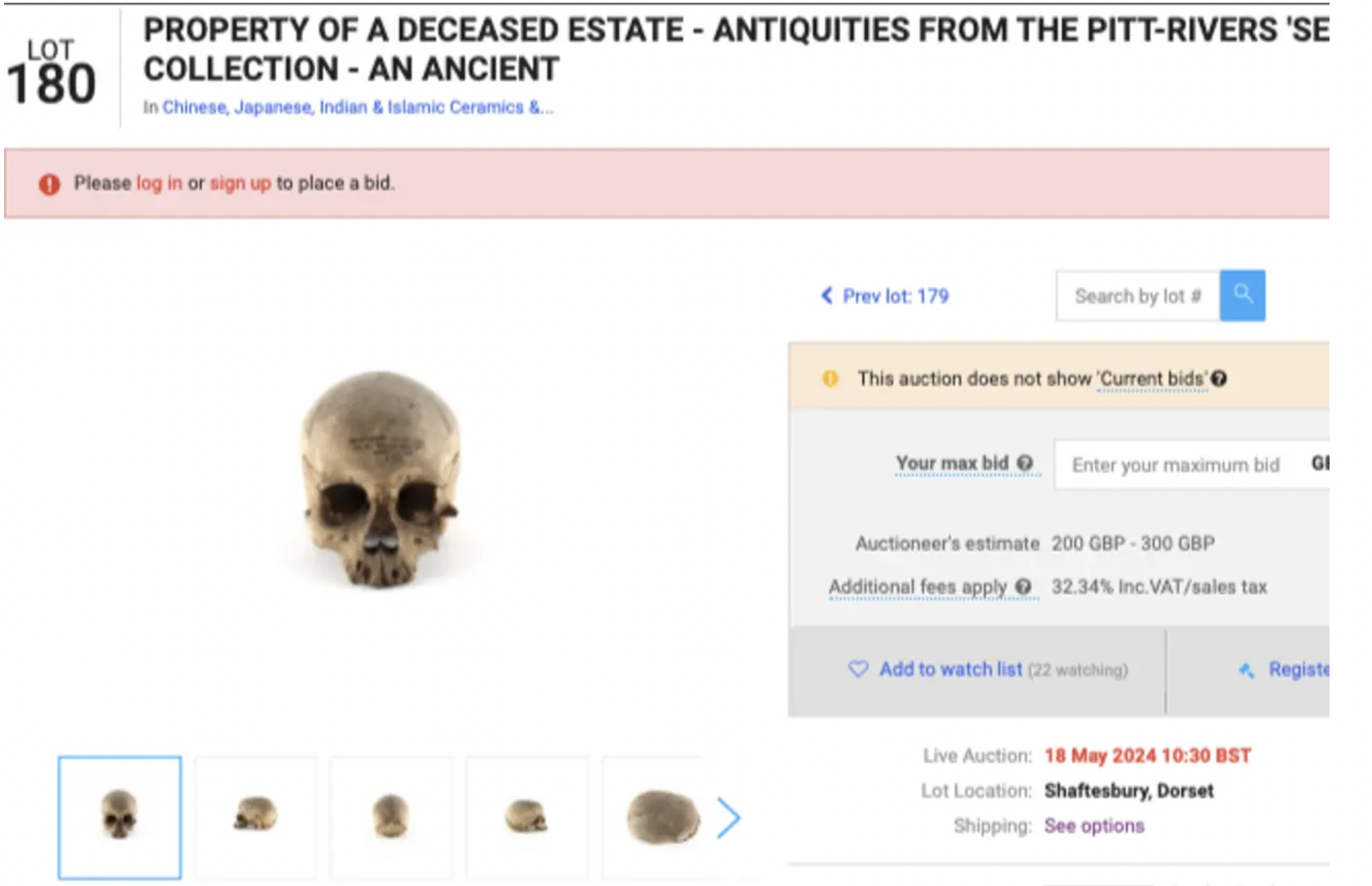
A British auction house has withdrawn from sale nearly 18 human skulls believed to be of Egyptian origin, following a wave of strong criticism from a British MP Bell Ribeiro-Addy, chair of the cross-party parliamentary group on African reparations.
She said that the sale of human remains for any purpose should be banned, describing this trade as a “gross violation of human dignity,” according to the British newspaper “The Guardian.”
The British auction house Semley Auctioneers had listed 18 skulls for sale through them, setting guide prices of between £200 and £300 each.

Origin and history of the skulls
The skulls were originally collected by the Victorian British soldier and archaeologist Augustus Henry, who founded the Pitt Rivers Museum at the University of Oxford in 1884.
They were classified as coming from the ancient Egyptian city of Thebes and dated back to 1550-1292 BC. They were displayed as part of the Pitt Rivers collection.
Subsequent ownership and sale
Parts of the collection were later sold by Augustus’s grandson, George, who was arrested by the British government during World War II for his support of the fascist leader Oswald Mosley.
The United Kingdom harsh laws regarding the storage, handling, and display of human remains. However, individuals can own, purchase, and sell human body parts on condition that they were not obtained illegally, are not used for organ transplants, and are for decorative purposes only.

Criticism and withdrawal
The auction house’s decision to withdraw the skulls from sale came after Ribeiro-Addy criticized the sale in the British Parliament. She argued that the skulls were likely taken from Egypt during the colonial era and that their sale would be a “disrespectful” act that would “perpetuate the atrocities of colonialism.”
She added, “We cannot allow profit to be made from the exploits of those who often hoped to find evidence for their racist ideology. It is imperative that we take decisive action to end such practices and ensure that the remains of those who were stolen from their homelands are respectfully repatriated,” according to The Guardian.
The auction house initially defended its decision to sell the skulls, arguing that they were legally acquired and that they have historical value. However, it eventually decided to withdraw the skulls from sale in light of the public outcry.
